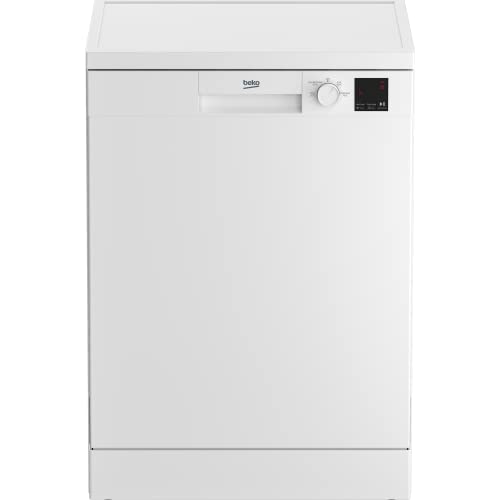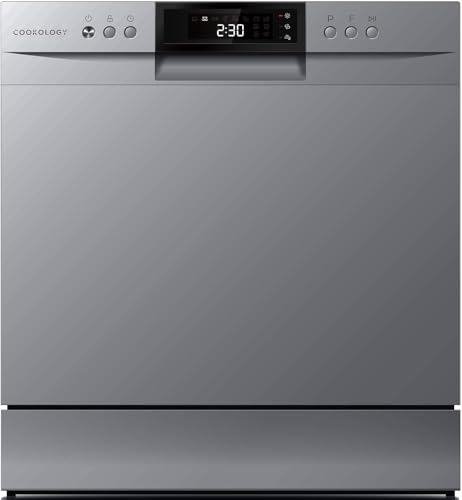




Have you ever wondered how long you can leave your dishes in the dishwasher before they need to be unloaded? This question has puzzled many people. Some believe that the dishes should be unloaded immediately after the cleaning cycle is finished, while others think it’s not a big deal to leave them in the dishwasher for a few hours or even overnight.
The truth is, there isn’t a one-size-fits-all answer to this question. The length of time dishes can stay in the dishwasher depends on various factors, such as the personal preference of the individual, the type of dishwasher, and the condition of the dishes. However, there are some general guidelines that can help you determine the right time to unload your dishwasher.
Most dishwasher manufacturers recommend unloading the dishes as soon as the cleaning cycle is complete. This is the best way to ensure that your dishes are cleaned and dried properly. Leaving them in the dishwasher for too long can lead to excess moisture and even a stinky odor. Additionally, leaving the door closed for a long period of time can create a breeding ground for bacteria.
If you’re short on time and need to leave the dishes in the dishwasher for a while, it’s best to unload them within 2-3 hours after the cycle is finished. This will help avoid any potential damage to the dishes and prevent the growth of bacteria. However, if you need to leave the dishes in the dishwasher for longer than that, it’s a good idea to open the door partially to allow air circulation and prevent any moisture from building up.
It’s also important to note that the type of dishwasher detergent you use can affect how long the dishes can safely stay in the dishwasher. Some detergents may leave a residue on the dishes if they are not unloaded promptly, while others are designed to dissolve completely, leaving your dishes sparkling clean. Always read the instructions on the detergent packaging and follow them accordingly.
In conclusion, while there is no set time limit for how long dishes can stay in the dishwasher, it is generally recommended to unload them as soon as the cleaning cycle is finished. Leaving them in the dishwasher for too long can lead to wet and smelly dishes, as well as the potential growth of bacteria. However, if you need to leave them in the dishwasher for a short period of time, make sure to open the door partially to avoid any moisture buildup. By following these guidelines, you can ensure that your dishes are always clean and ready to use.
How Long Can Dishes Stay in the Dishwasher?
When it comes to leaving dishes in the dishwasher, the answer is not as straightforward as you might think. There are various factors to consider, such as the type of dishwasher you have, the temperature at which it runs, and your personal preference for cleanliness. In general, perfectly clean and dry dishes should not sit in the dishwasher for too long.
What happens if you leave dishes in the dishwasher for too long?
If you leave your dishes in the dishwasher for too long, they can start to develop an unpleasant smell, especially if they haven’t been fully dried. Additionally, bacteria and mould can begin to grow on your dishes, especially if there is any leftover food or water in the dishwasher. This can result in a breeding ground for pests and potentially make you sick if you consume from those dishes.
How long can dishes stay in the dishwasher before they become unclean?
The exact timeframe varies depending on factors such as temperature, humidity, and the type of dishwasher you have. On average, dishes should not be left in the dishwasher for more than 24 to 48 hours. If you leave them for longer, they may become partially or fully dirty again, negating the previous washing-up cycle.
Tips for keeping your dishes clean and fresh in the dishwasher:
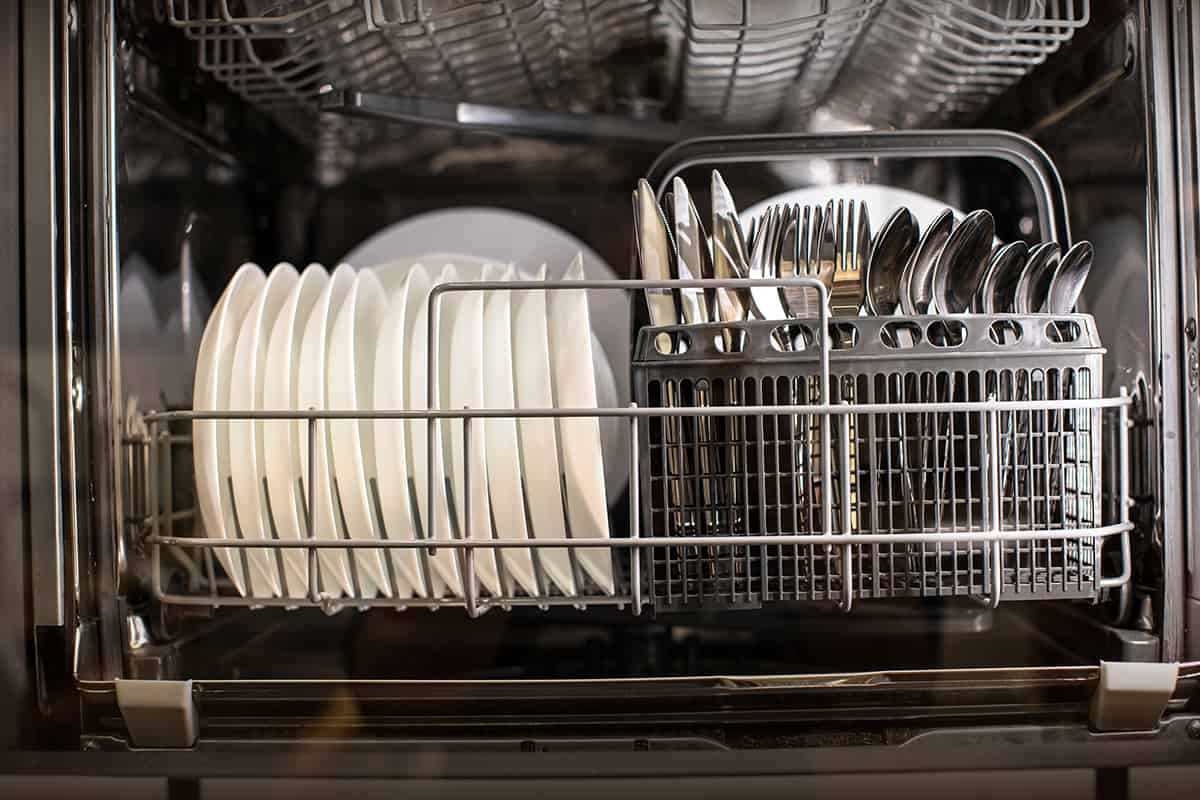
- Unload the dishwasher as soon as it’s finished: To prevent any moisture from lingering and developing a stinky smell, make sure to empty the dishwasher promptly after the cycle is complete.
- Rinse dishes before loading: While dishwashers are designed to handle food particles, it’s best to scrape off excess food and give the dishes a quick rinse before placing them in the dishwasher. This helps prevent any leftover food from spreading and sticking to other dishes during the washing process.
- Run the dishwasher whenever it’s full: It’s best to run your dishwasher only when it’s full to optimize water and energy wastage. Running a half-empty dishwasher not only wastes resources but may also result in dishes not being properly cleaned.
- Regularly clean the dishwasher filters and assembly: Dishwashers have filters that collect food particles and debris, so it’s important to clean them regularly to prevent clogs and ensure proper water flow. Refer to your dishwasher’s manual for instructions on how to do this.
- Use the right detergents: Using the appropriate dishwasher detergents can help ensure your dishes come out clean and bacteria-free. Pay attention to the recommendations on the detergent packaging for the best results.
In summary, it’s best to unload your dishwasher as soon as it’s finished, rinse dishes before loading, and run the dishwasher only when it’s full. Regular maintenance and using the right detergents will help keep your dishes clean, free from bacteria, and smelling fresh.
For more information on dishwasher maintenance and best practices, refer to your dishwasher’s user manual or consult reputable online sources.
References: Dishwasher user manual, “How to Clean and Maintain Your Dishwasher” article by Robin with Appliances Online.
Understanding the Dishwasher Cycle
When it comes to using a dishwasher, understanding how the dishwasher cycle works is crucial for efficiency and cleanliness. The dishwasher cycle is a series of steps that the machine goes through to clean your dishes effectively. In this article, we will break down the dishwasher cycle and provide tips on how long you should leave your dishes in the dishwasher.
The Dishwasher Cycle
The dishwasher cycle typically consists of several stages, including pre-rinse, main wash, rinse, and drying. During the pre-rinse stage, the dishwasher sprays water to remove any large food particles from the dishes. Next, the dishwasher moves on to the main wash stage, where it uses detergent and hot water to clean the dishes more thoroughly. After the main wash, the dishwasher rinses off any remaining soap and debris with fresh water. Finally, the drying stage uses hot air or heated elements to dry the dishes.
How Long Can Dishes Stay in the Dishwasher?
The length of time you can leave dishes in the dishwasher after the cycle is complete depends on several factors. Let’s take a closer look:
- If you plan to use the dishes soon, it is generally safe to leave them in the dishwasher until you need them. Just make sure to run the dishwasher on a regular basis to prevent the growth of bacteria and odors.
- Leaving dishes in the dishwasher overnight or for a few days is also acceptable, but it is a good idea to empty the dishwasher as soon as possible to avoid any potential buildup of bacteria or mold.
- It is recommended not to leave dirty dishes in the dishwasher for more than a week, as this can lead to a foul smell, mold growth, and a potential health hazard.
Tips for Optimal Dishwasher Use
Here are some tips to ensure your dishwasher works efficiently and your dishes come out clean:
- Scrape off excess food from dishes before loading them into the dishwasher to prevent clogging of the filters and ensure a proper wash.
- Load dishes properly, making sure they are not overcrowded and the spray arms can rotate freely for thorough cleaning.
- Use an appropriate detergent and follow the manufacturer’s instructions for optimal results.
- Regularly clean and maintain your dishwasher, including cleaning the filters, to prevent buildup and improve its lifespan.
- If you are concerned about bacteria or want to ensure maximum cleanliness, you can add a sanitizing rinse or use special dishwasher detergents that have antibacterial properties.
Summary
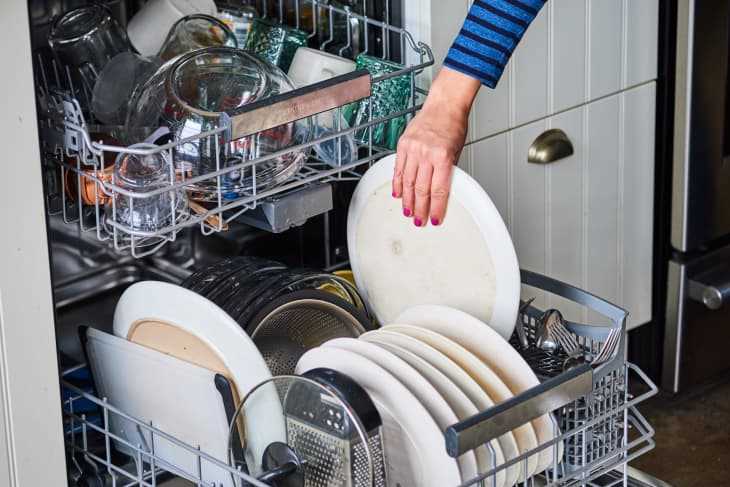
In conclusion, leaving dishes in the dishwasher for a short period of time is generally okay, as long as you plan to use them soon. However, it is important not to neglect the dishwasher and let dirty dishes sit for too long, as this can lead to bacteria growth and foul odors. By understanding the dishwasher cycle and following proper maintenance and loading techniques, you can ensure that your dishes are cleaned effectively and your dishwasher operates efficiently.
Factors Affecting Dishwasher Drying Time
When it comes to using a dishwasher, one of the most important factors to consider is the drying time. Proper drying ensures that your dishes come out clean and ready to be used again. However, there are several factors that can affect the drying time of your dishwasher.
1. The Load Time
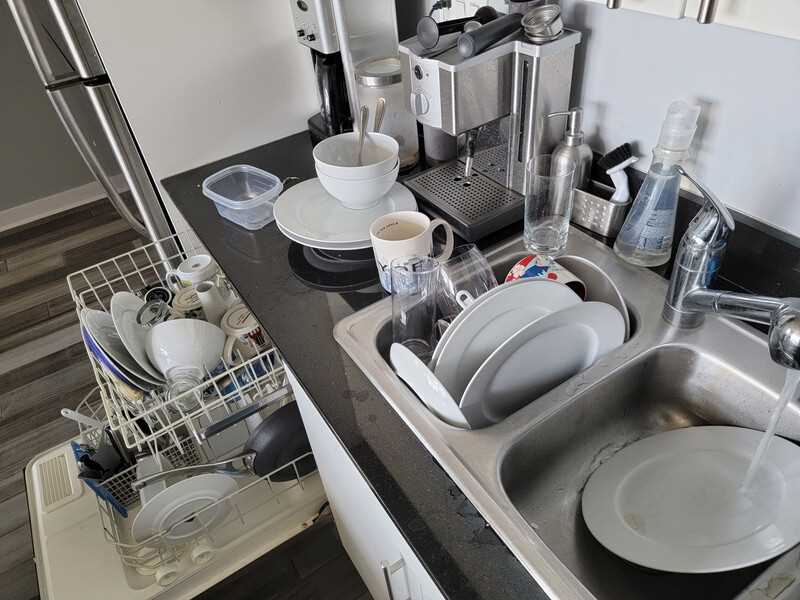
The amount of time you leave your dishes in the dishwasher after the cycle is complete can affect the drying process. If you leave your dishes inside the dishwasher for too long, they may not dry completely. It’s best to remove your dishes as soon as the cycle finishes to ensure they dry properly.
2. Overloading the Dishwasher
Overloading the dishwasher can also lead to longer drying times. When the dishwasher is too full, air circulation is restricted, making it harder for the dishes to dry. To avoid this, make sure to arrange your dishes in a way that allows air to flow freely.
3. Rinse Aid
Using rinse aid can significantly improve the drying performance of your dishwasher. Adding a rinse aid to the dishwasher can help remove water spots and reduce drying time. Rinse aid also helps dishes to dry more evenly and reduces the chances of leftover residues on the surface.
4. Dishes with Excess Water
If your dishes have excess water on them before putting them in the dishwasher, it can affect the drying time. Wiping off excessive moisture from dishes can help speed up the drying process.
5. Dishwasher Operating Temperature
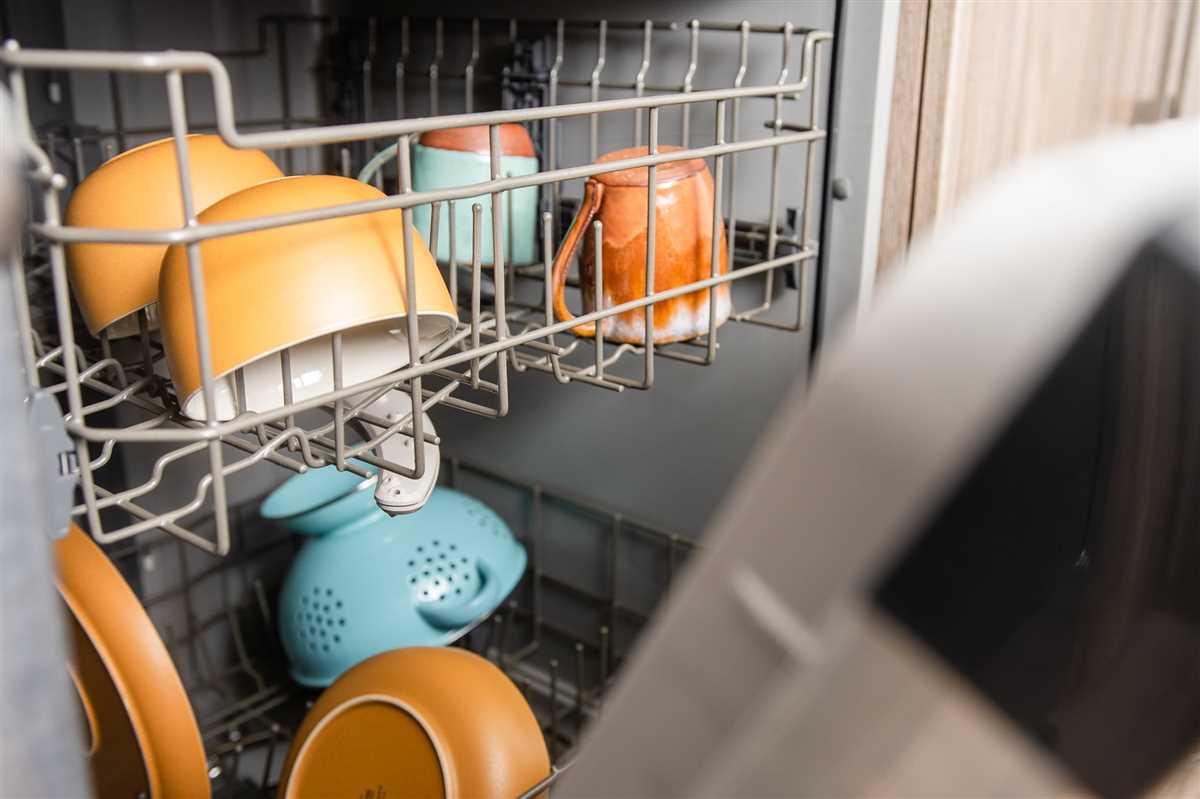
The operating temperature of the dishwasher can affect the drying time as well. Higher temperatures tend to result in faster drying, while lower temperatures may result in longer drying times. Check the manufacturer’s instructions for the recommended temperature settings.
By considering these factors, you can ensure that your dishwasher provides effective washing and drying results. For more information on dishwasher tips and tricks, you can visit resources like kitchensnitches.com or consult your dishwasher’s user manual for specific guidance.
Optimal Timeframe for Leaving Dishes in the Dishwasher
When it comes to how long you should leave dishes in the dishwasher, there are a few factors to consider. While it may be tempting to leave them inside for an extended period, doing so can lead to negative outcomes. To help you avoid common mistakes and keep your dishwasher in good working condition, here are some guidelines:
The Power of Washing-up Detergents
Modern dishwasher detergents are formulated to provide effective cleaning even with shorter wash cycles. This means that you can safely leave your dishes in the dishwasher for up to a week without worrying about the results. However, it’s important to note that dishes should not be left in the dishwasher for longer than a week, as it may result in mold or bad smells.
Load Capacity and the Need for Rinsing
One of the key points to keep in mind is the capacity of your dishwasher. If you overload it, the dishes may not get fully cleaned, and you may need to run a second cycle. On the other hand, if you don’t load it enough, it is not using its resources effectively. Consider using a dishwasher load capacity guide to help you determine the best way to load the dishes and optimize the dishwasher’s performance.
In terms of rinsing, it is generally unnecessary to rinse your dishes before putting them in the dishwasher. Modern dishwashers are designed to handle most food residues. However, it’s a good idea to scrape off any large pieces of food to avoid clogging the dishwasher’s drain. Rinse the dishes only if they have been sitting for a long time or if they have sticky or greasy substances stuck to them.
The Overnight Dilemma
Leaving dishes in the dishwasher overnight is a common practice. While it can be convenient, it’s important to note that it’s best to run the dishwasher within 24 hours. This timeframe ensures that any food particles or other residue don’t dry up and stick to the dishes, making them harder to clean. If you can’t run the dishwasher within 24 hours, consider running a rinse cycle before loading it again to keep the dishes moist.
A Summary of Best Practices
In summary, here are some best practices to follow when it comes to leaving dishes in the dishwasher:
- Leave dishes in the dishwasher for up to a week, but avoid leaving them for longer to prevent mold or bad smells.
- Optimize the load capacity to ensure the dishes get properly cleaned without needing additional cycles.
- Only rinse dishes if necessary, especially those with sticky or greasy substances.
- Run the dishwasher within 24 hours to prevent food particles from drying up and sticking to the dishes.
- If you can’t run the dishwasher within 24 hours, consider running a rinse cycle to keep the dishes moist.
Potential Risks of Leaving Dishes for Too Long
Leaving dishes in the dishwasher for too long can have a variety of potential risks and negative consequences. It’s important to be aware of these risks and take steps to prevent them.
Mould and Odor
One of the main risks of leaving dishes in the dishwasher for too long is the potential for mould to grow on the leftover food particles. When dishes are left unwashed and the dishwasher door is kept closed, the warm and moist environment provides an ideal breeding ground for mould. As the mould grows, it can release unpleasant odors that can spread to other parts of the kitchen.
Tip: To prevent mould and odor, dishes should be promptly washed and removed from the dishwasher once they are clean. Leaving the dishwasher door partially open allows fresh air to circulate, helping to prevent mould growth and eliminate any odors.
Pest Infestation
Another risk of leaving dishes in the dishwasher for too long is the attraction of pests. Leftover food particles on dirty dishes can attract pests such as ants, roaches, and even rodents. These pests can find their way into the dishwasher, causing an infestation problem that can be difficult to resolve.
Tip: To prevent pest infestation, it’s important to thoroughly rinse dishes before placing them in the dishwasher and to promptly wash and remove clean dishes. Keeping the dishwasher door closed and ensuring there are no cracks or gaps in the seals can also help prevent pests from entering the appliance.
Grease and Stains
Leaving dishes in the dishwasher for too long can also lead to the hardening of grease and stubborn stains. When dishes are left sitting in the dishwasher, the grease from food particles can solidify, making it more difficult to remove during the next washing cycle. These stains can be unsightly and may require extra cleaning or pre-soaking to remove.
Tip: To prevent grease and stains, dishes should be promptly washed after use, especially if they are heavily soiled. Using quality detergents and running the dishwasher at the recommended settings can help ensure that dishes are thoroughly cleaned and grease-free.
Inefficiency and Overfilling
Leaving dishes in the dishwasher for too long can lead to inefficiency and overfilling. If dirty dishes are left in the dishwasher and the appliance is not emptied, there may not be enough capacity for new dirty dishes. This can result in overfilling and poor cleaning results, as the water and detergent may not be able to reach every dish properly.
Tip: To ensure efficiency and prevent overfilling, it’s important to regularly empty the dishwasher once the cleaning cycle is complete. This will allow for optimal cleaning performance and prevent the need for rewashing.
Summary
Leaving dishes in the dishwasher for too long can lead to potential risks such as mould, odors, pest infestation, grease and stains, and inefficiency. To prevent these risks, it’s important to promptly wash and remove clean dishes, rinse dishes before placing them in the dishwasher, and keep the dishwasher door partially open when not in use. Regularly emptying the dishwasher and using quality detergents can also help ensure clean and sanitary dishes.
References:
- “How Long Can Dishes Stay in the Dishwasher?” – Robin Website
- “The Importance of Proper Dishwasher Etiquette” – Haven Magazine
Related Posts on Dishwasher Maintenance and Tips
- How to Clean Your Dishwasher: Keeping your dishwasher clean is essential for its optimal performance. This article provides step-by-step instructions on how to clean all the parts of your dishwasher, from the dishrack to the door. By regularly cleaning your dishwasher, you can prevent the build-up of dirt, residue, and bacteria, ensuring that your dishes are always cleaned effectively.
- Tips for Loading Your Dishwasher: Properly loading your dishwasher is key to achieving good results. This post offers helpful tips and guidelines on how to load your dishwasher correctly, ensuring that everything fits and gets cleaned efficiently. From organizing your dishes to maximizing the dishwasher’s capacity, this resource provides useful insights for a successful dishwashing experience.
- Common Dishwasher Problems and How to Solve Them: Is your dishwasher not working as expected? This article discusses common dishwasher issues and provides practical solutions to solve them. From tackling a dishwasher that doesn’t clean well to dealing with a dishwasher that leaves residue on your dishes, this resource offers troubleshooting tips to help you fix the problem.
- Water Saving Tips for Dishwashers: Did you know that using your dishwasher can save water compared to washing dishes by hand? This post explores various water-saving tips and techniques that can help you optimize your dishwasher’s water usage. From adjusting the water temperature to minimizing pre-rinsing, you’ll discover effective ways to conserve water while still getting your dishes sparkling clean.
FAQ
Is it okay to leave dishes in the dishwasher overnight?
Yes, it is generally safe to leave dishes in the dishwasher overnight. Modern dishwashers have options for delayed start, which can be used to start the cycle at a more convenient time. However, it is important to note that leaving dishes in the dishwasher for too long can lead to bad odors and bacteria growth.
How long can I keep dishes in the dishwasher before running it?
You can keep dishes in the dishwasher for up to two days before running it. However, it is recommended to run the dishwasher within 24 hours to prevent any unpleasant odors or bacterial growth.
What are the consequences of leaving dishes in the dishwasher for too long?
Leaving dishes in the dishwasher for too long can lead to bad odors and bacterial growth. The warm and moist environment inside the dishwasher provides a breeding ground for bacteria. Additionally, food particles can become dried and stuck on the dishes, making them harder to clean later.
Can I leave dishes in the dishwasher for several days if I don’t use it often?
Yes, you can leave dishes in the dishwasher for several days if you don’t use it often. However, it is important to rinse off any leftover food particles before placing the dishes in the dishwasher to prevent bacterial growth. It is also recommended to run a rinse cycle before running a full wash cycle to avoid any unpleasant odors.
Is it more water-efficient to run the dishwasher immediately or wait until it’s full?
It is more water-efficient to wait until the dishwasher is full before running it. Running a dishwasher with a full load maximizes the water and energy usage, making it more environmentally friendly. However, if there are heavily soiled dishes or dishes with dried-on food, it is better to rinse them off and run the dishwasher immediately to ensure effective cleaning.
Can I run the dishwasher even if it’s not fully loaded?
Yes, you can run the dishwasher even if it’s not fully loaded. However, keep in mind that running a dishwasher with a full load is more water and energy-efficient. If you decide to run the dishwasher with a partial load, make sure to use the appropriate cycle and options to avoid wasting water and energy.









